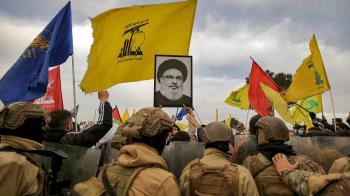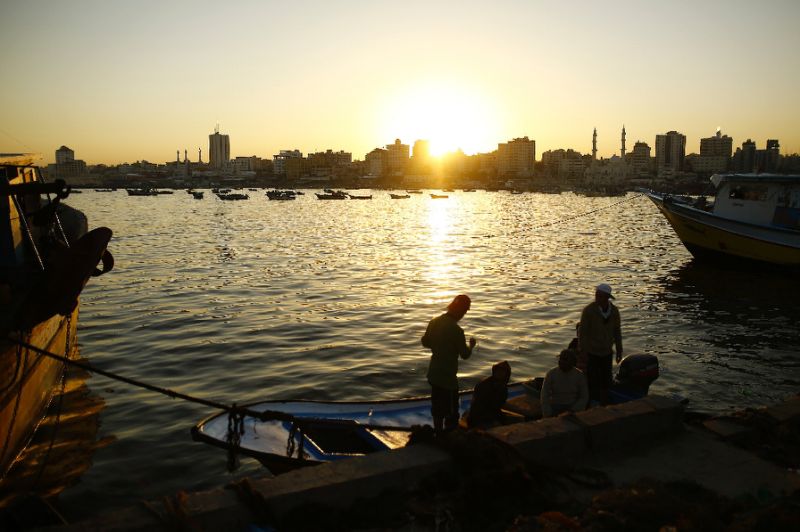Alwaght- Palestinians in the besieged Gaza Strip will try to break through the Israeli regime's sea blockade on the impoverished coastal enclave on Tuesday, while Tel Aviv tries to erect a sea barrier to bar desperate Gazans from breaching the decade-long siege.
Israeli regime in cooperation with Egypt has imposed land, air, and sea blockade on the densely populated Palestinian strip since June 2007. The blockade has caused a decline in the standards of living as well as unprecedented levels of unemployment and unrelenting poverty for some two million Gazans.
A group of organizers in the sliver say they will try to help Gazans get through the blockade by boat this week following weeks of brutal massacre of unarmed Palestinian protesters by Israeli live fire along the border of the besieged sliver with the occupied territories.
The organizers, who have so far given few details of their plan, said on Sunday that their boat would sail on Tuesday at 11:00 a.m. local time (0800 GMT), on board of which would be patients needing medical care, students and job-seeking university graduates.
However, the exact location of departure and their intended destination were not announced.
The boat would also bring “dreams of our people and their aspirations for freedom”, organizer Salah Abdul-Ati said in a press conference at Gaza City’s port on the Mediterranean coast.
Gazan boats are generally allowed to go as far as six nautical miles offshore, and the Israeli navy regularly fires warning shots at Palestinians who breach it. Israeli military vessels will open live fire directly at the boats that try to violate the distance limit.
The organizers’ plan comes four days ahead of the eighth anniversary of a deadly raid on Turkish-registered Mavi Marmara, part of a flotilla of six vessels, seeking to break Israel’s blockade, enter the besieged sliver and give desperately-needed humanitarian aid and construction materials to the impoverished people.
Nine Turkish activists were killed in the operation, and another died in hospital in 2014. The whole cargo was confiscated by Israeli authorities.
The occupied territories have been the scene of new tensions ever since US President Donald Trump on December 6, 2017, declared Washington’s recognition of Jerusalem al-Quds as Israel’s “capital” and promised that the US would move its diplomatic mission to the city.
The highly provocative move caused outrage among Palestinians, who want the occupied West Bank as part of their future independent state with East Jerusalem al-Quds as its capital. Israel, on the other hand, lays claim to the whole city as its “capital.”
In the hours leading up to the inauguration of the embassy in al-Quds on May 14, Israeli troops engaged in clashes with Palestinian protesters, killing over 60 unarmed demonstrators and wounding more than 2,700 others, either through direct shooting or firing tear gas canisters. The death toll is so far the highest in a single day since a series of Palestinian protests demanding the right to return to ancestral homes began on March 30.
The embassy inauguration also coincided with the climax of a six-week demonstration on May 15, the 70th anniversary of Nakba Day (Day of Catastrophe), when Israel was created and hundreds of thousands of Palestinians were forcibly evicted from their homeland by Israelis in 1948.
According to Gaza medical officials, more than 115 Palestinians have so far lost their lives by Israeli fire since the border rallies began in late March.
Additionally on Sunday, Israel announced that it had begun working on a “new and impenetrable” barrier, in the form of a fortified breakwater topped with barbed wire, off the Zikim beach, a few kilometers north of Gaza, to prevent the possibility of infiltrations by sea from the inhabitants of Gaza.
“This is a unique obstacle that will effectively prevent the possibility of penetrating Israel by sea,” further said the minister of military affairs, Avigdor Lieberman, in a statement.
Gaza has been under an Israeli siege since June 2007, causing a decline in living standards as well as unprecedented unemployment and poverty there.
In addition, the Israeli regime has imposed increasing power cuts and shortages in fuel in the sliver, hugely disrupting water and sanitation services. Medicines and health equipment are also in dire short supply, straining an already fragile health system.
Israel has also launched several wars on the Palestinian sliver, the last of which began in early July 2014 and ended in late August the same year. The Israeli military aggression killed nearly 2,200 Palestinians and injured over 11,100 others.



























